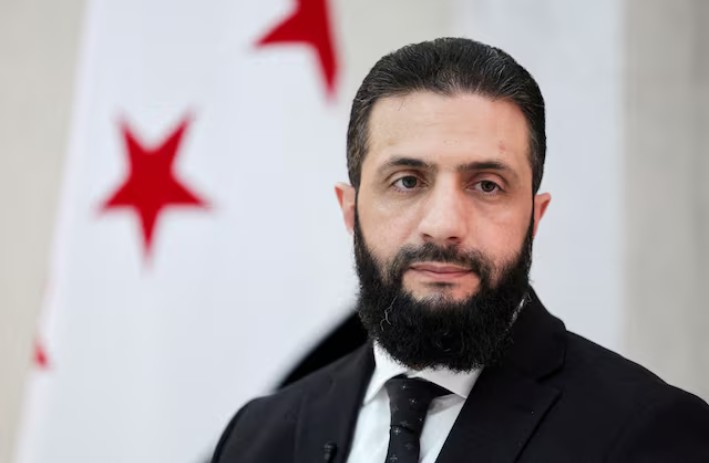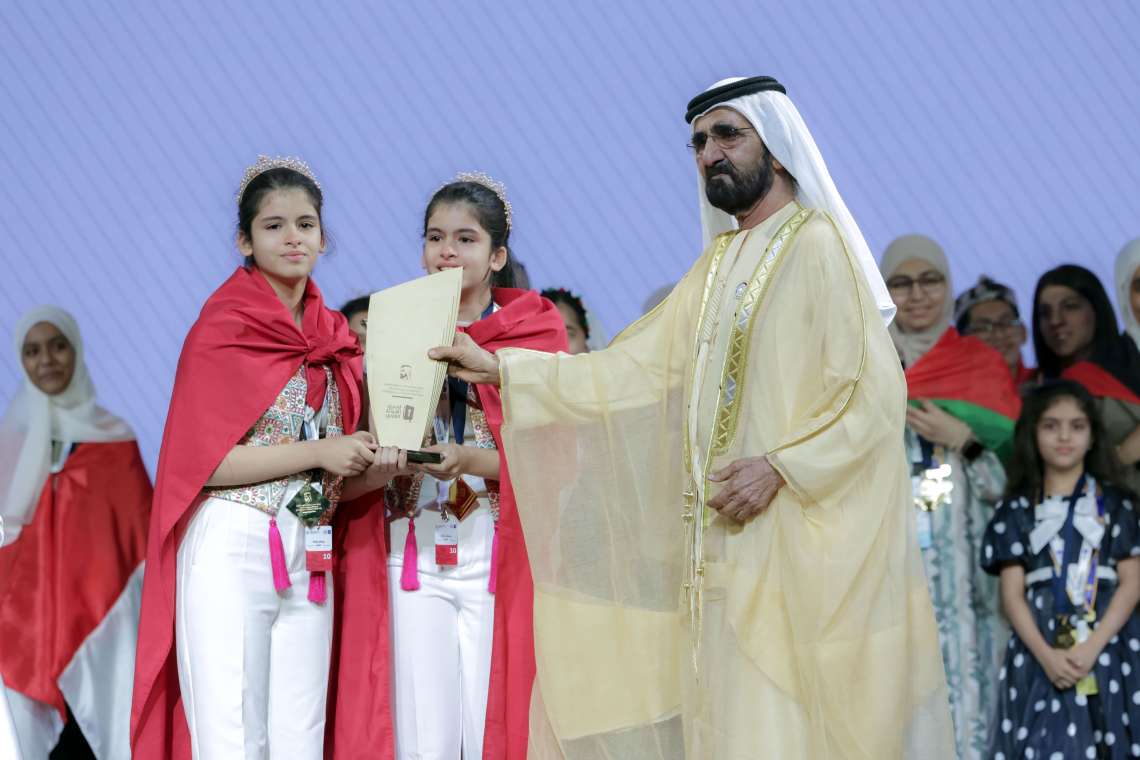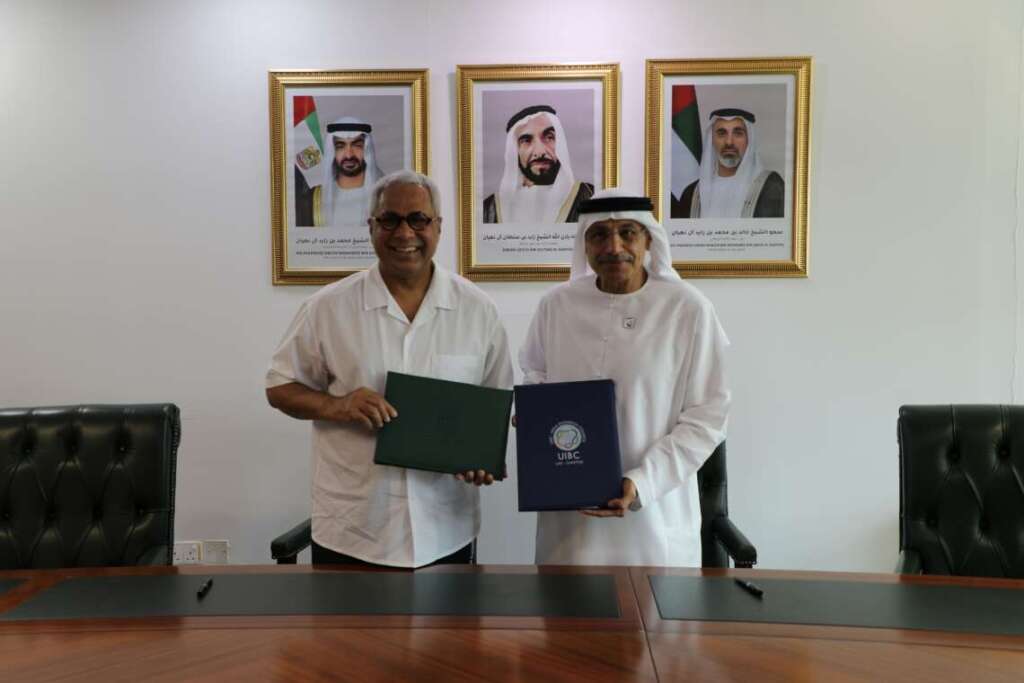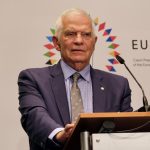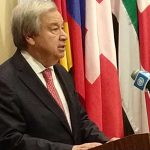Syria’s interim president vows to shield Druze minority as Israeli airstrikes rock Damascus, escalating a regional standoff over sectarian attacks and Islamist-led governance.
Syrian interim president Ahmad al-Sharaa has accused Israel of attempting to destabilise Syria with a series of powerful airstrikes that rocked Damascus and southern Sweida province, home to the country’s Druze minority. The strikes, which damaged parts of the defence ministry and caused civilian casualties, mark a sharp escalation in the regional standoff over Syria’s internal divisions and emerging alliances.
In a nationally televised address on Thursday, al-Sharaa condemned what he described as a “blatant violation” of Syria’s sovereignty. He reiterated that protecting all Syrians, especially vulnerable groups like the Druze, remains a government priority.
“Our people waged a revolution for freedom and emerged victorious through great sacrifice,” he said, adding that Syrians remained prepared to fight for their honour if provoked. Without directly naming Israel, he accused the “Israeli entity” of pursuing a long-standing strategy to fragment Syria, incite civil unrest and obstruct its reconstruction.
“Syria is not a testing ground for foreign conspiracies,” he said, “and we won’t allow external ambitions to be realised at the expense of our children and our future.”
The interim president also addressed the Druze community directly, reaffirming their place as an “integral part of the nation” and warning against being dragged into “foreign agendas or internal division.”
The Israeli military, which confirmed Wednesday’s strikes, said its forces had targeted government installations in Damascus and near the presidential palace in response to what it claimed were threats against the Druze. The strikes followed reports that Syrian government forces were intensifying operations in southern Syria. Israel has long warned it would act to prevent Islamist-aligned troops from gaining ground near its borders.
Eyal Zamir, Israel’s military chief of staff, said Syrian troops had failed to protect the Druze and were contributing to the threat. “We will not allow southern Syria to become a terror stronghold,” he said.
The Syrian foreign ministry, meanwhile, said the strikes on civilian infrastructure and government buildings had injured multiple civilians, including women and children, and caused significant material damage. A government statement accused Israel of maintaining a “systematic policy of escalation” and called on the United Nations and Security Council to take urgent measures.
The situation has triggered global concern. US Secretary of State Marco Rubio said Washington had been in touch with all involved parties and expected the violence to subside “by tonight.”
On the ground, reports from the Syrian Network for Human Rights put the civilian death toll at 169, while other security sources estimated it closer to 300. In Damascus, warplanes were seen sweeping low over the capital, triggering multiple explosions and plumes of smoke.
The United Nations Security Council is expected to meet on Thursday to address the escalating conflict.
Israeli Druze, responding to the violence, breached a section of the border fence on Wednesday to reach their kin in Syria. Prime Minister Benjamin Netanyahu urged restraint, saying the Israeli military was working to return those who had crossed and was committed to safeguarding the Druze.
One Israeli Druze man, Faez Shkeir, whose family lives in Sweida, said he felt helpless. “They kicked them out of their homes, they robbed and burned their houses, but I can’t do anything,” he said.
As Syria reels from both foreign strikes and internal upheaval, al-Sharaa’s Islamist-led administration faces the urgent task of holding the fractured country together—while fending off threats from abroad and suspicion from within.
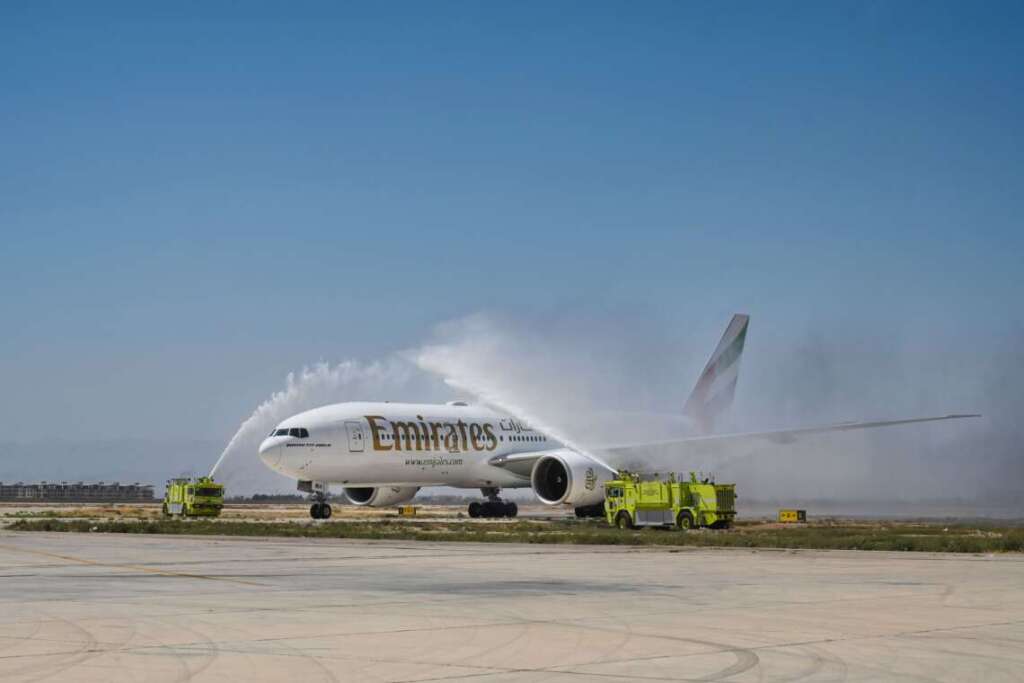
Damascus back on Emirates map
Emirates has officially resumed flights to the Syrian capital, marking a major milestone in UAE-Syria relations and reconnecting Damascus with global aviation networks after a 12-year hiatus.
Flight EK913 landed at Damascus International Airport on Wednesday afternoon carrying 286 passengers, receiving a ceremonial water cannon salute on arrival. The restart of operations marks the return of the “City of Jasmine” to the airline’s extensive Middle East network, linking Syria once again to over 140 destinations across six continents.
The Emirates delegation was led by Dr. Ahmad Belhoul Al Falasi, UAE Minister of Sports and Chairman of the UAE Space Agency, alongside senior airline executives including Adel Al Redha, Deputy President and COO; Sheikh Majid Al Mualla, Divisional Senior VP of International Affairs; and other top officials from Emirates, the UAE Civil Aviation Authority, Dubai Police, and the Dubai Civil Aviation Authority.
They were welcomed by a VIP Syrian delegation, including UAE Ambassador to Syria Hasan Ahmed Al Shehhi and senior airport and aviation officials from Damascus.
Adil Al Ghaith, Emirates’ Senior VP for Commercial Operations, hailed the moment as a “significant milestone.”
“By connecting Syria to nearly 150 destinations, we aim to facilitate tourism, trade and investment and support the country’s recovery,” he said.
The ceremony was marked by cake-cutting and an exchange of commemorative gifts, reflecting what Syrian officials described as a testament to the “shared vision” and “strong bilateral ties” between the two nations.
Initially, Emirates will operate three weekly flights to Damascus on Mondays, Wednesdays and Sundays, ramping up to daily service by late October. The resumed flights are backed by a codeshare partnership with flydubai, offering passengers greater flexibility and regional access.
Syria’s General Authority of Civil Aviation praised the relaunch, noting the operational restart involved months of high-level coordination.
Before suspending its Damascus operations in 2012 due to the conflict, Emirates had carried more than 2.1 million passengers on the route since it first launched service in 1988.
The return of Emirates marks a further thaw in Syria’s international standing and signals growing UAE engagement in the region’s post-conflict reintegration.

